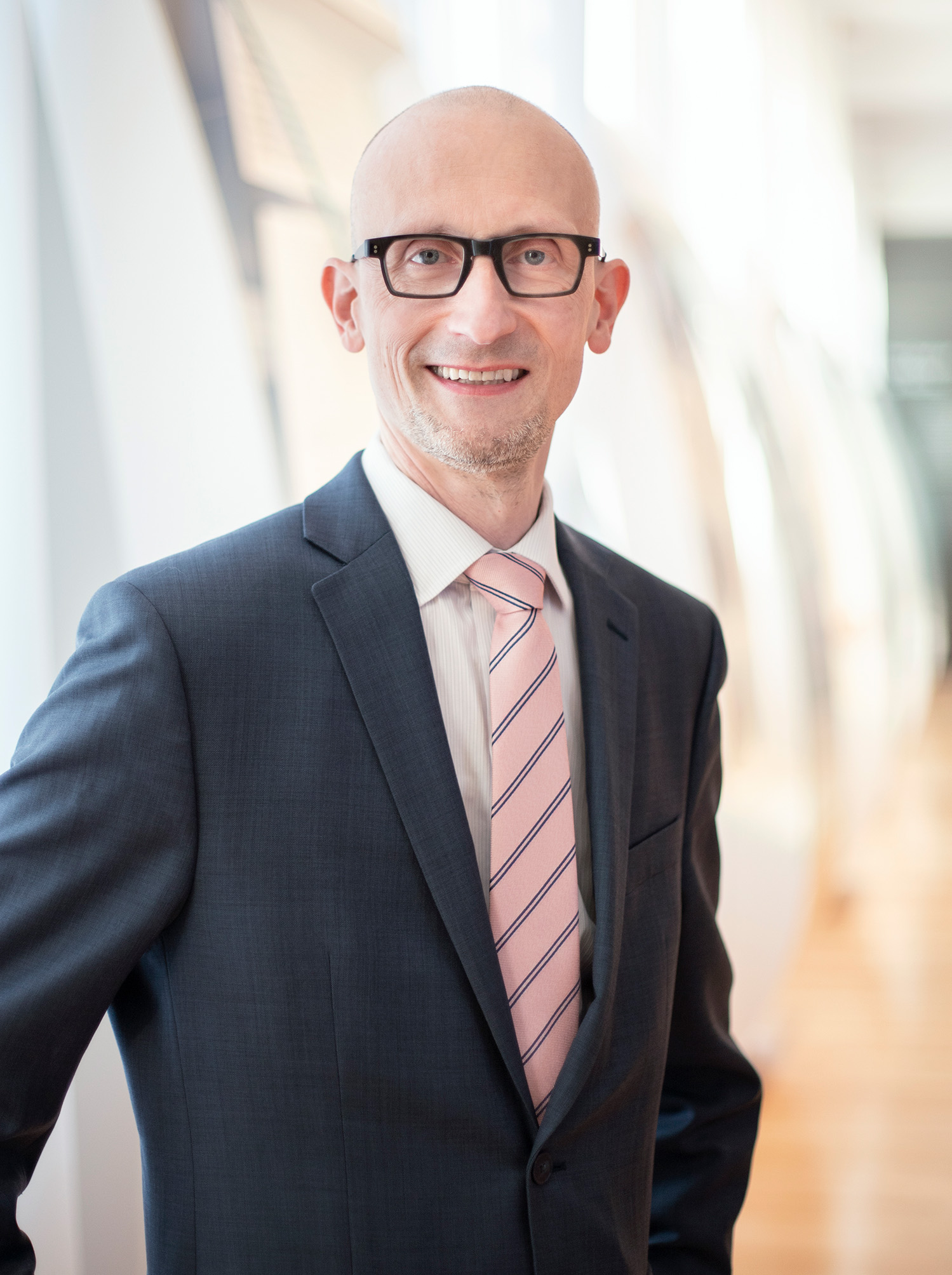What a Library Can Do
A music major at UConn, Johannes Neuer now lives in Leipzig, Germany, safeguarding a nation’s memories.

Neuer, at the German National Library, believes a library’s mission “to record everything without fear or favor” is essential to democratic society.
A national library is the memory of a country, and Germany’s is no exception. An archive of the country’s tumultuous and violent story since 1913, the German National Library is the storehouse of a past that must never be forgotten.
“The National Library plays a vital role in German society,” says Johannes Neuer ’00 MM, the new director of the Leipzig site, the library’s original home and one of its two current locations. “It holds everything that is published in Germany. And it makes no judgments.”
It wasn’t always so. The library’s founding mission was to collect, catalogue, and make accessible all literature published in Germany. But in 1933, the library was incorporated into the Nazi propaganda ministry. “Undesirable” literature was promptly removed from access.
Following the end of the Second World War, the Leipzig building, damaged by allied bombing raids, became the leading state library of communist East Germany. “Certain publications from the West were strictly off limits to the public,” says Neuer. A West German library was opened in Frankfurt in 1946.
In 1990, the two libraries merged during German reunification. Today, along more than 250 miles of shelf space, sits every book, journal, CD, and map published in Germany from the beginning of the 20th century, catalogued in perfect sequence.
Neuer’s path to the top of the library world, though, was far less organized.
Arriving in Storrs as a German study-abroad student from the University of Mannheim, Neuer was quickly captivated by New England. He stayed on for a Master of Music in double bass performance and immersed himself in UConn’s musical life.
“I played in the wind ensemble, and in the orchestra,” says Neuer. “I discovered new repertoire. And I accompanied other kids from bass class on the piano.”
He also fell in with the art scene in Hartford. After college, he worked for the Wadsworth Atheneum and went on to hold management positions at Chamber Music Plus and the Hartford Symphony Orchestra. “I was able to use the musical education I had from UConn, along with marketing and administrative skills, to venture into cultural management.”
In 2009, Neuer and his wife, whom he’d met in Hartford, moved to New York City. Applying for marketing jobs with nonprofits, he ended up at The New York Public Library, the fourth-biggest library on the planet. It was, he says, a surprise.
“I’d been a reader all my life. But it was just by chance that I ended up in the library world. I worked five years in the marketing department, moving up to director of digital engagement. Then I switched over to library administration and became the director of customer experience.”
In New York, Neuer saw how the library was changing lives. From its literacy programs to its world-class research collections, the library was enriching minds of all ages, across backgrounds. “I saw what libraries can do for anybody who wants to advance in life,” he says.
In 2018, he and his family moved to Germany, where he took a position with a library supply company. But he wasn’t satisfied. “I really wanted to go back to library administration, back to serving the public,” he says. “So when I heard the German National Library was looking for a director, I put my name in the hat.”
Neuer took the reins in Leipzig this summer at a time of transition. What challenges does he face? Guiding the library through an increasingly digital publishing landscape for one, as well as introducing artificial intelligence into library systems while, at the same time, making sure he protects jobs.
“We have AI that can do full text scans and catalog items at a very fast rate,” says Neuer. “So this is a transitional moment for some of our professional colleagues.”
The library’s founding task — to record everything, without fear or favor — remains a guiding principle for Neuer. “In a democratic society,” he says, “it is very important that we don’t hold anything back.”
And it turns out Neuer is returning to his musical roots as well. The library is home to the German Music Archive, which holds more than 2.1 million works, made up of sheet music and sound recordings. “In a way,” he says, “it’s like I’m coming full circle.”
By Tomas Weber
Photo by Johanna Baschke

Leave a Reply